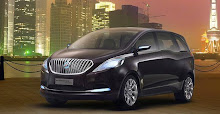It’s no strange we see more and more hybrids on the road!
Last year, there were some 480,000 total hybrid vehicles sold around the world, which represents a little less than 1% of global sales. Though, with fuel prices, ever-stricter emissions rules, more favorable incentives and higher fuel economy standards, the hybrid will soon be getting an even push from both consumers and government. It’s predicted that 11.28 million hybrids will be sold annually by 2020, representing over 13-percent of all vehicles sold, according to a recent study conducted by JPMorgan.

Much of that increase in sales will be attributed to the United States, as the report suggests that hybrids will capture nearly 20 percent of the total market share in this country.
In addition, another factor driving the increase sales of hybrid vehicle will be a drastic reduction in the cost of hybrid technology. Right now hybrids cost about $5,667 more than their standard counterparts, but by 2020 that's estimated to plummet to just $1,890.
Of course, more hybrids also mean more business for hybrid component suppliers, which worked in a $3.16 billion market last year. JPMorgan estimates that market will swell to $23.6 billion by the end of the next decade.
Last year, there were some 480,000 total hybrid vehicles sold around the world, which represents a little less than 1% of global sales. Though, with fuel prices, ever-stricter emissions rules, more favorable incentives and higher fuel economy standards, the hybrid will soon be getting an even push from both consumers and government. It’s predicted that 11.28 million hybrids will be sold annually by 2020, representing over 13-percent of all vehicles sold, according to a recent study conducted by JPMorgan.

Much of that increase in sales will be attributed to the United States, as the report suggests that hybrids will capture nearly 20 percent of the total market share in this country.
In addition, another factor driving the increase sales of hybrid vehicle will be a drastic reduction in the cost of hybrid technology. Right now hybrids cost about $5,667 more than their standard counterparts, but by 2020 that's estimated to plummet to just $1,890.
Of course, more hybrids also mean more business for hybrid component suppliers, which worked in a $3.16 billion market last year. JPMorgan estimates that market will swell to $23.6 billion by the end of the next decade.
What do you think about that number?





No comments:
Post a Comment